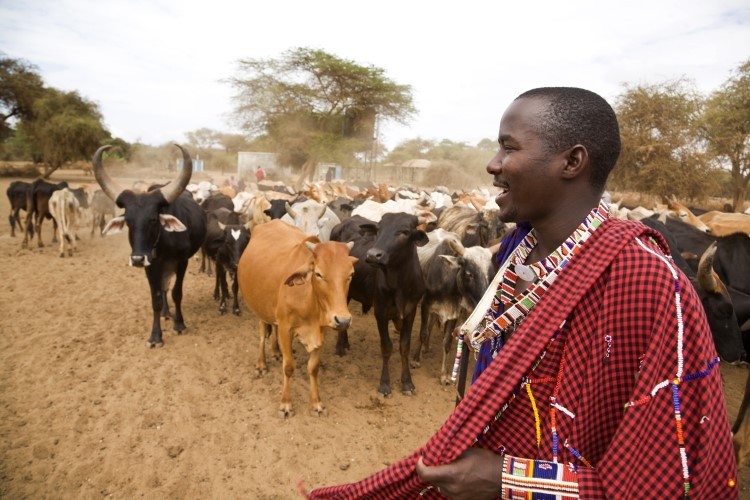Africa focus: Arla’s plans for Nigeria’s nomadic herders

The multi-national dairy co-op first entered a formal partnership with the Nigerian government in 2016 and says it has since built several milk collection centers in the region, carried out training for local farmers, and enhanced milk collection and production capacity with a local co-operative.
In Nigeria, more than 90% of milk production comes from pastoralist farming and around 5% - from commercial farming. But this system brings a relatively low yield and is unable to meet current market demand, estimated to be around 1.45bn liters of milk per annum. Meanwhile, the average milk consumption per capita stands at 20-25 liters in Nigeria. In comparison, most European counties consume between 150 and 200 liters of milk per capital per year.
The memorandum therefore aims to encourage nomadic herders to join into ‘cooperative business structures’ and offer training on various aspects of dairy farming, including sustainability and employment opportunities.
“Nigeria has a dairy deficit with a gap in dairy demand versus dairy produced, and Arla Foods seeks to bridge that deficit by providing affordable quality dairy nutrition to the Nigerian consumer,” Peder Pedersen, Arla MD for Nigeria, told us. “As we continue to operate a business in Nigeria, we will only do so in a sustainable way – improving the dairy sector, meeting consumer demand, and creating employment opportunities.”
Pedersen says the co-op’s MOU ‘aims to continue the good work which we have started in driving the sustainable development of the Nigerian dairy sector’.
“Specifically, we aim to continue to improve the process of, and attractiveness of local dairy farming in Nigeria by providing training on organization structure and other elements of proper dairy farming to nomadic farmers. The co-operation also aims to continue to create employment opportunities and create sustainable income for dairy farmers in Nigeria.”
While pasture-based farming continues to dominate in Nigeria, Pedersen told us that an increasing number of farmers are adopting methods popularized in developed economies. “The old way of farming in Nigeria, by pastoralist farming, is still strong and majority of the local milk is still made by this way of farming,” he said.
“However, more farms are now coming up locally where focus is on farming methods that are more often known in more developed countries. Here, technology is of high importance, especially when it comes to cow cooling, use of sensors for animal welfare monitoring, and so on.”
There are of course direct benefits for Arla, as Pedersen explained, though cooperation is key: “We see a number of opportunities for backward integration by sourcing local fresh milk for our dairy production through our dairy farm, but also through partnerships and off-take agreements with local pastoralist farmers.”
He added: “Operating in the Nigerian market remains challenging with tough macro-economic environment with rising inflation, shrinking consumer pockets and reduced consumption in addition to a variety of other issues. However, we believe that dairy remains an important part of the consumer’s diet, and therefore we will continue to ensure we can provide the right product assortment for the Nigeria consumer.”
Besides working with the Nigerian government, Arla Foods is also involved in several other dairy development projects in the country. Amongst those are training sessions for local farmers in order to maximise the output and quality of their milk pool under the Milky Way partnership and the imminent opening of a state-of-the-art Arla-driven farm in Kaduna State.






